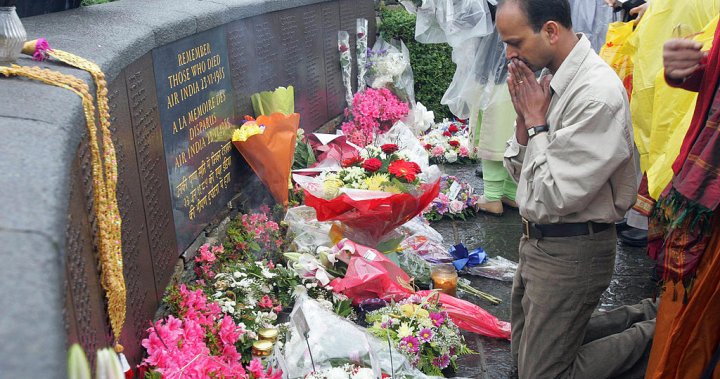Friday marked the 38th anniversary of the deadliest terror attack on Canadian citizens in the country’s history.
But a new poll has revealed Canadians know troublingly little about the National Day of Remembrance for Victims of Terrorism and the Air India bombings it was created to honour.
On June 23, 1985 329 passengers and crew, 268 of them Canadians, were killed when a bomb went off on Air India flight 182. A second bomb killed two baggage handlers in Japan. Both attacks were tied to a B.C.-based terrorist group seeking an independent Sikh state in India.
Despite the massive scale of the tragedy, just three in 10 Canadians say they’ve ever heard of the Air India tragedy, according to Angus Reid Institute president Shachi Kurl.
Sixty per cent of respondents aged 18 to 34 said they’d never heard of it, while just one in five people were able to correctly identify the attack as the deadliest on Canadian citizens.
“I did not anticipate the numbers being quite that brutal and quite that stark. And I think it gives rise to ask some questions around what are our provincial education systems teaching and not teaching,” Kurl said.
“This isn’t something that happened 150 years ago or 50 years ago, it happened 38 years ago when many of us were still alive. This is not something that is so far faded or wasn’t covered at the time that it is lost to the sands of time.”
Amber Dean, a professor of English and cultural studies at McMaster university said she wasn’t surprised by the poll’s results.
Dean co-wrote Remembering Air India, the Art of Public Remembering, a book examining the public response to the massacre and admitted until starting her research she, too, knew little about the incident.
“Remembrance of the event was kind of seen as outside of the scope of Canadian responsibility in response to the deaths — we had a memorial built in Ireland near the site of the crash by 1986, a year after the event happened, but it took 20 years to get public memorials built in Canada,” she said.
“When that’s the response of the government, it’s not surprising then that Canadians more broadly don’t have a wider understanding of the event.”
Dean said the role of racism also cannot be ignored, something she said retired Supreme Court Justice John Major also pointed to in the final report of the inquiry he headed into the investigation that followed the bombings.
“The other factor that always comes into play, that family members have spoken to over and over, is the fact it was South Asian Canadians who were affected and who died in the bombing,” Dean said.
“If it was not brown bodies but white bodies, people have asked over and over what difference that would have made to the way the event is remembered.”
The public inquiry into the attack ultimately concluded “cascading series of errors” by police, intelligence officers and air safety regulators allowed the attack to take place.
Talwinder Singh Parmar, a prime suspect, died in 1992.
Just one person was ever convicted in the attack, Inderjit Singh Reyat, who pleaded guilty to manslaughter and later spent nine years in prison for perjury for his testimony as a Crown witness in the 2003 trial of Ripudamen Singh Malik and Ajaib Singh Bagri.
Malik and Bagri were acquitted of mass murder and conspiracy charges in the bombings in 2005.
Thursday’s anniversary was marked with memorial events in Vancouver, Toronto, Ottawa and Montreal.
© 2023 Global News, a division of Corus Entertainment Inc.
For all the latest World News Click Here
For the latest news and updates, follow us on Google News.

